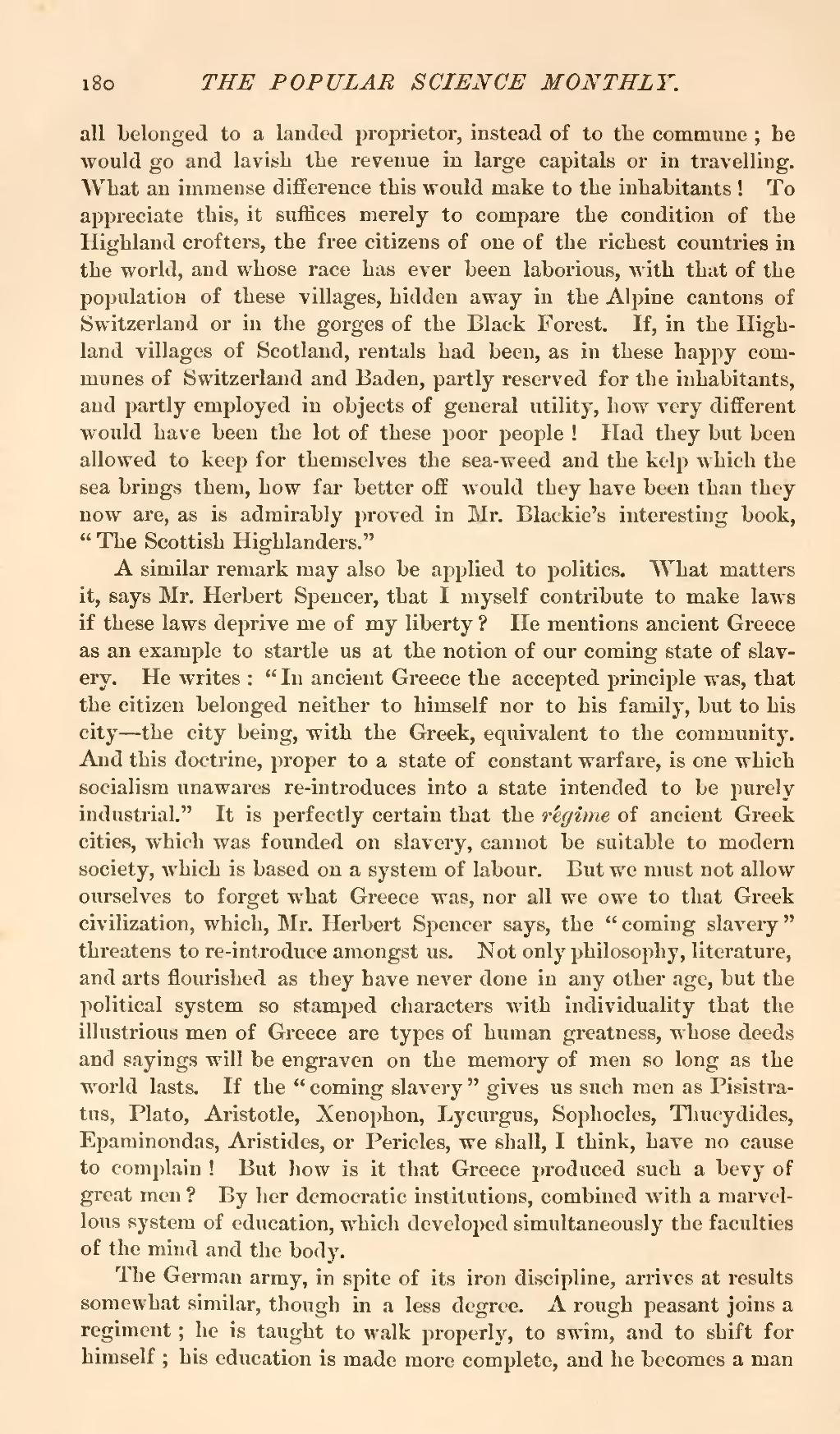all belonged to a landed proprietor, instead of to the commune; he would go and lavish the revenue in large capitals or in travelling. What an immense difference this would make to the inhabitants! To appreciate this, it suffices merely to compare the condition of the Highland crofters, the free citizens of one of the richest countries in the world, and whose race has ever been laborious, with that of the population of these villages, hidden away in the Alpine cantons of Switzerland or in the gorges of the Black Forest. If, in the Highland villages of Scotland, rentals had been, as in these happy communes of Switzerland and Baden, partly reserved for the inhabitants, and partly employed in objects of general utility, how very different would have been the lot of these poor people! Had they but been allowed to keep for themselves the sea-weed and the kelp which the sea brings them, how far better off would they have been than they now are, as is admirably proved in Mr. Blackie's interesting book, "The Scottish Highlanders."
A similar remark may also be applied to politics. What matters it, says Mr. Herbert Spencer, that I myself contribute to make laws if these laws deprive me of my liberty? He mentions ancient Greece as an example to startle us at the notion of our coming state of slavery. He writes: "In ancient Greece the accepted principle was, that the citizen belonged neither to himself nor to his family, but to his city—the city being, with the Greek, equivalent to the community. And this doctrine, proper to a state of constant warfare, is one which socialism unawares re-introduces into a state intended to be purely industrial." It is perfectly certain that the régime of ancient Greek cities, which was founded on slavery, cannot be suitable to modern society, which is based on a system of labour. But we must not allow ourselves to forget what Greece was, nor all we owe to that Greek civilization, which, Mr. Herbert Spencer says, the "coming slavery" threatens to re-introduce amongst us. Not only philosophy, literature, and arts flourished as they have never done in any other age, but the political system so stamped characters with individuality that the illustrious men of Greece are types of human greatness, whose deeds and sayings will be engraven on the memory of men so long as the world lasts. If the "coming slavery" gives us such men as Pisistratus, Plato, Aristotle, Xenophon, Lycurgus, Sophocles, Thucydides, Epaminondas, Aristides, or Pericles, we shall, I think, have no cause to complain! But how is it that Greece produced such a bevy of great men? By her democratic institutions, combined with a marvellous system of education, which developed simultaneously the faculties of the mind and the body.
The German army, in spite of its iron discipline, arrives at results somewhat similar, though in a less degree. A rough peasant joins a regiment; he is taught to walk properly, to swim, and to shift for himself; his education is made more complete, and he becomes a man

